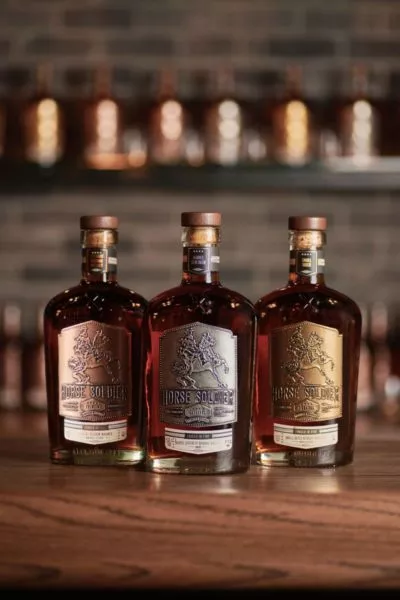By Kellie Speed
When U.S. Army Green Beret Scott Neil answered the country’s call days after 9/11 with a daring insertion into northern Afghanistan on horseback, he never could have imagined that he and retired members of the U.S. Special Forces would later create an all-American, ultra-premium whiskey. Their bravery earned Neil and his team the moniker of “Horse Soldiers” (portrayed in the 2018 movie 12 Strong) and later inspired the retired members of the U.S. Special Forces to create an award-winning bourbon.
Horse Soldier Bourbon was created in 2015 based on three core elements – building an authentic team, using all-American ingredients and products, and making an award-winning bourbon. Their three bourbons include the Straight Bourbon, Small Batch Bourbon and Barrel Strength Bourbon, along with limited edition annual expressions like the high-end Commander’s Select Limited Edition Release. They hold more than 30 awards, including three Double Gold Medals at the San Francisco International Spirits Competition.
The team will soon be opening a $200 million tourism distillery development project known as Horse Soldier Farms in Somerset, Kentucky. The venue will feature everything from a massive 27,585-square foot distillery visitor center, an amphitheater, adventure center, wedding chapel, luxury lodge with cabins and a retail village.
We caught up recently with Neil to discuss his transition to civilian life, how his military experience provided a path to success and how he and his team continue to honor their military past.
After returning to the U.S. from Afghanistan, was there a pivotal moment when you decided to become entrepreneurs and create Horse Soldier Bourbon?
I had initially worked as a government contractor following my retirement and immediately went back overseas. After my rotation, I promised my family that I would never work for the government again and knew that I would be best served working for myself and building my own business.
How do you think your military experience helped you on the path to creating this successful business venture?
There is an initial fear that maybe you do not have the same skills as someone that served as a business owner, but that is completely wrong. I did need to learn new words and acronyms, but I found it was the same as my prior service — culture, responsibility, work ethic — all are skills transferable to the next life of being an entrepreneur.
What were some of the challenges you faced transitioning to civilian life and starting a business post-military?
Believe it or not, the uncertainty places a lot of stress on your decision to move forward with starting your own business. The risk of failure weighs heavy on your mind, but you have to have all the elements, just like combat mission planning, for it to be successful.
How do you continue to honor your military past?
We still remember our past by keeping close to the active-duty community. We host events and retirements; we mentor current transitioning active-duty members on their choices and what to expect as they consider starting a business. We constantly say that it is time to serve in a different way. Be a productive member of society, become part of the next greatest generation. The ones that returned from WWII returned home to do great things for the growth of this country, and so can they. It is OK to live the American Dream they were defending.


